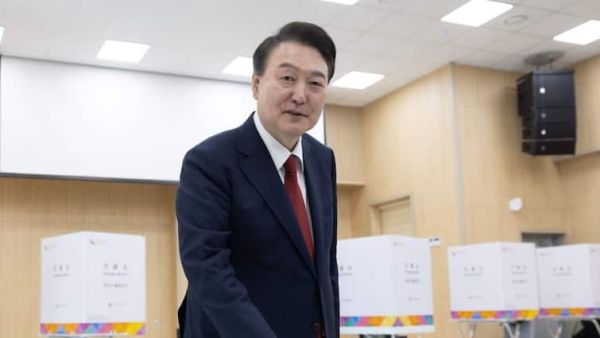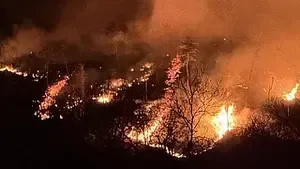
A South Korean court has sanctioned the arrest of ousted President Yoon Suk Yeol over allegations tied to his short-lived imposition of martial law in December. The decision came after Special Prosecutor Cho Eun-suk argued that Yoon could potentially interfere with the ongoing investigation.
Yoon, who had earlier been removed from office in April after the Constitutional Court upheld his impeachment, was taken back to a detention facility near Seoul. His initial arrest in January had been overturned by the Seoul Central District Court in March, allowing him to face trial while out of custody.
Prosecutor Cho is now pursuing a broader set of charges against Yoon, which includes abuse of power, fabrication of official documents, and hindrance of official duties, according to an Associated Press (AP) report.
Yoon’s Martial Law Move Under Legal Fire
The controversy centres around Yoon’s decision on December 3 to impose martial law, which he defended as essential to suppress what he labelled “anti-state” liberal opponents. He accused the opposition of using their parliamentary majority to derail his political agenda.
However, the order lasted only a few hours. A quorum of legislators managed to breach a cordon of armed soldiers at the National Assembly and swiftly voted to repeal the martial law decree.
Yoon’s lawyers criticised the arrest warrant as “excessive and lacking evidence”, as per the AP report. The former president appeared in court on Wednesday but did not answer any questions. After a seven-hour-long hearing, he was transported to the detention centre while awaiting the court’s final decision.
Yoon was impeached by lawmakers on December 14 and formally indicted on January 26. Prosecutors alleged he orchestrated a failed rebellion by attempting to take over the legislature, seize election offices, and detain political adversaries. The charges, according to AP, are among the most severe under South Korean law and could result in a death sentence or life imprisonment.
According to AP, authorities have also accused him of bypassing mandatory legal procedures—such as holding a Cabinet meeting—before enforcing martial law. Additionally, Yoon allegedly misused presidential security personnel to act as a private militia, blocking law enforcement officers from detaining him at his home in early January.
In June, Lee Jae Myung, Yoon’s liberal rival who succeeded him following a snap election, approved sweeping investigations into Yoon’s declaration of martial law as well as other criminal allegations involving his administration and wife.
-
Principal Secretary to the PM, Dr P K Mishra Visits Key Indigenous Projects at HAL

-
Special Trains to be run by NFR to accommodate extra passenger rush during Shravani Mela

-
Wildfire that reached Marseille pushed back but not extinguished

-
Divita Juneja's debut garners applause

-
WIRC of ICSI and Directorate General of Taxpayer Services (Mumbai) celebrate GST Day
